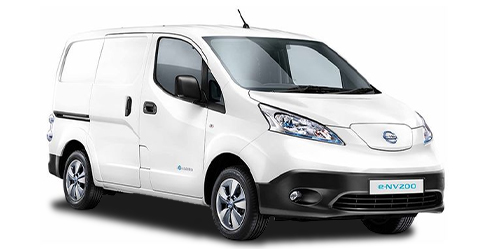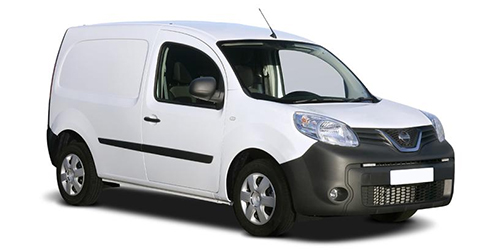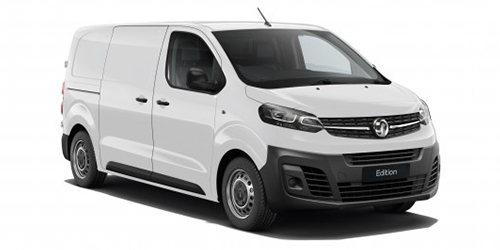Alternative fuel LCVs
Using alternative fuels to power your light commercial fleet

Advancements in technology and the number of models available has made eLCVs a financially and operationally viable alternative to combustion engines.
The incredible growth of alternative fuels – including electricity, hydrotreated vegetable oil (HVO) and Gas-To-Liquid (GTL) – is becoming increasingly popular in commercial vehicles, whilst others such as hydrogen will also be powering vehicles in the coming years.
Electrification of commercial fleets

Experts in change
Ogilvie have a wealth of experience in guiding your fleet towards electrification in advance of the government’s 2030 deadline – when all new vehicles will need to be electric.

Future is electric
Whilst currently there are limited electric light commercial vehicles on the market, this number is growing with more new models coming to market in 2025, many of which will have increased EV ranges and payloads.

Did you know
A typical LCV driving 25,000 miles pa would usually do less than 100 miles each working day. Many eLCVs currently available have a published WLTP EV range in excess of 100 miles, with some over 200 miles on a full charge.
Furthermore, we can continue to bespoke the specification to meet your needs whilst partnering with a number of the UKs leading and trusted body builders and workplace / storage solutions companies ensuring we fully support your business needs.
Can my commercial fleet go electric?
For many fleets, the electrification of all or some of its vehicles is now a very viable option. There is a wide range of financial and environmental benefits to electrifying your light commercial vehicles:

Government Grants up to 2024
The plug-in grant is available for small vans (less than 2,500kg gross vehicle weight) and large vans (between 2,500kg and 4,250kg gross vehicle weight) with CO2 emissions of less than 50g/km and ability to travel at least 96km (60 miles) without any emissions at all.
The grant will pay for 35% of the purchase price for the vehicle, up to a maximum of £2,500 for small vans and £5,000 for large vans.

Workplace Charging Scheme
The Workplace Charging Scheme (WCS) is a voucher-based scheme that provides support towards the up-front costs of the purchase and installation of electric vehicle chargepoints for eligible businesses.
Your business can potentially claim up to 40 workplace charge points with a maximum grant of £14,000.

Vehicle Excise Duty
Electric only vehicles do not pay any Vehicle Excise Duty in the first or subsequent years.

Congestion Charge Zones
Zero emission vehicles are exempt from the costs associated with operating within CAZ zones.

Lower Fuel Costs
Typically the average costs to charge are 75% lower than the equivalent Diesel fuel costs.

Reduced Downtime
Due to significantly fewer moving parts the likelihood of the vehicle breaking down is reduced saving your business precious time and money

Total Cost of Ownership
Some eLCVs have a lower TCO when compared to their combustion engine comparison (taking all of the above into account).

Driver welfare
EVs are generally easier to drive than their manual combustion engine counterparts, this may also improve driver fatigue.
Driver training may be required, and vehicles over 3.5tonne require a Cat B driving licence
Company Van Benefit (BIK)
Company van benefit is £3,600 for a combustion engine if there is private use. However, this is only reduced to NIL if there is no or only insignificant private use (commuting is not deemed to be private use in a van, provided that the primary reason that the employee has use of the van is for business travel in the normal course of their job) or it is a pooled van.
Electric Van Benefit charge (zero co2 emission) is ZERO regardless of private use.
Environment / Carbon Footprint
Zero emission electric vehicles have a significantly reduced carbon footprint which is better for the environment
Electric vs Combustion cost
See below for a cost comparison of electric vs combustion LCVs.
Small Van

NISSAN e-NV200 ELECTRIC 80kW Visia Van Auto 40kWh
| Power KW | 80 (109ps) |
| PayLoad kg | 705kg |
| EV Range | 124 |
| Battery Capacity | 40 |
| OTC Cost | £489 |
| CAZ Costs | £0 |
| Total OTC PM | £489 |
| Saving/Cost PM | -£46 |
| Saving/Cost PA | -£553 |
VS

NISSAN NV250 L1 DIESEL 1.5 dCi 95ps Visia Van
| Power PS | 95ps |
| PayLoad | 671kg |
| – | |
| – | |
| OTC Cost | £514 |
| CAZ Costs | £22 |
| Total OTC PM | £535 |
| Saving/Cost PM | £46 |
| Saving/Cost PA | £553 |
Medium Van

VAUXHALL e-VIVARO L1 3100 100kW Dynamic 75kWh H1 Van
| Power KW | 100 (136ps) |
| PayLoad kg | 1000kg |
| EV Range | 205 |
| Battery Capacity | 75 |
| OTC Cost | £658 |
| CAZ Costs | £0 |
| Total OTC PM | £658 |
| Saving/Cost PM | -£3 |
| Saving/Cost PA | -£39 |
VS

VAUXHALL VIVARO L1 DIESEL 2700 1.5d 120PS Dynamic H1 Van
| Power PS | 120ps |
| PayLoad | 1079kg |
| – | |
| – | |
| OTC Cost | £640 |
| CAZ Costs | £22 |
| Total OTC PM | £661 |
| Saving/Cost PM | £3 |
| Saving/Cost PA | £39 |
Examples based on the following assumptions; 4 year/100,000 mile contract; 96 miles per day; 5 day working week; 1 x £9 CAZ visit per month; 1 x £12.50 London congestion charge visit per month.

Hydrotreated Vegetable Oil
HVO fuel is an environmentally friendly alternative to traditional diesel and biodiesel fuels, produced from a wide variety of raw materials including waste cooking oil.

This is suitable for businesses able to install an onsite HVO bunker for their vehicles as it is not yet commonly available in the UK’s fuelling stations.

Many major manufacturers, including Ford, have approved both HVO and Gas-To-Liquid fuels for use in their commercial vehicles.
HVO Benefits
- HVO fuel is an environmentally friendly alternative to traditional diesel and biodiesel fuels
- HVO can significantly reduce greenhouse gas emissions compared to pump diesel, particularly if made from recycled raw materials
- HVO does not require vehicle updates or have any performance limitations
- The service interval/warranty is likely to be unaffected by use of HVO
- HVO is more stable than biodiesels, without the potential detriments like increased NOx emission, deposit formation, storage stability problems, poor cold properties, or faster aging of engine oil (except there may be a slight detrimental impact on oil service life for very slow speed urban delivery drivers)
- HVO can be mixed with petroleum pump diesel in any ratio up to 100%

Get in touch!
Our experts can tailor this comparison based on your own operational factors. Get in touch with Ogilvie Fleet’s electric vehicle experts today to find out how we can help you electrify your fleet.
We only use cookies to help improve our website. View our privacy policy to see how.